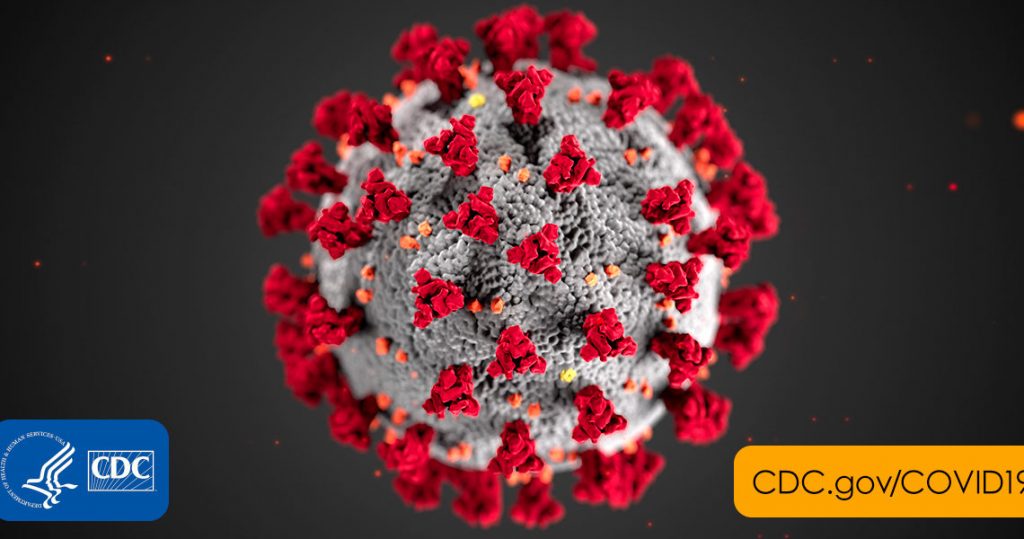
COVID-19 is a member of the coronavirus family of viruses and causes the respiratory infection known as coronavirus disease 2019.
Coronaviruses are a large family of viruses that cause respiratory illnesses such as the common cold and more severe illnesses such as severe acute respiratory syndrome (SARS), Middle East respiratory syndrome (MERS), and COVID-19. Coronaviruses commonly circulate in animals and sometimes also infect humans.
How does COVID-19 spread?
While COVID-19 is believed to have originated from animals, the virus is thought to spread mainly person-to-person:
- Between people who are in close contact with one another (prolonged face to face contact within about 6 feet)
- Via respiratory droplets produced when an infected person coughs or sneezes, and landing in the mouths or noses of people who are nearby or possibly inhaled into the lungs
It may be possible that a person can get COVID-19 by touching a surface or object that has the virus on it and then touching their own mouth, nose, or possibly their eyes, but this is not thought to be the main way the virus spreads.
People are thought to be most contagious when they are most symptomatic (the sickest). Some spread might be possible before people show symptoms; there have been reports of this with this new coronavirus, but this is not thought to be the main way the virus spreads.
Current evidence suggests a typical incubation period (time from exposure of the virus to the development of symptoms) of 2 to 14 days. The virus becomes a pandemic when it occurs worldwide, or over a very wide area crossing international boundaries, and affects a large number of people.
What are the symptoms?
Symptoms related to COVID-19 include:
- Fever
- Cough
- Sore throat
- Runny nose
- Difficulty breathing
In more severe cases, infection can cause pneumonia and other complications, especially in infants, older individuals, and in those with underlying health conditions.
I’m sick. How do I know if it’s COVID-19?
COVID-19 symptoms and cold/flu symptoms are similar.
Students that have symptoms of fever, cough, breathing challenges, and are feeling concerned should call the Ministry of Health Toll free Line: 0800-100-066. Faculty and staff should call their primary care provider or use the tools on the http://www.health.go.ug
Please also exercise the usual precautions associated with seasonal illnesses like colds and flu.
- Stay home to rest and drink plenty of fluids
- Contact your health care provider (see above) for guidance
- Limit contact with other household members
- Do not share items like drinking glasses, towels, eating utensils.
- Wipe down high touch surfaces (e.g. doorknobs, telephones, remote controls, and bathroom surfaces) often with a standard household disinfectant such as Clorox® wipes.
I’ve read about deaths from COVID-19. Should I be worried?
While the situation is evolving, currently available data show that most of the deaths have been in more vulnerable groups, including the elderly and those with underlying medical conditions. Similar to the flu, these populations are at increased risk for more severe illness.
Should I be concerned about pets or other animals?
While this virus seems to have emerged from an animal source, it is now spreading person-to-person. The CDC recommends that people traveling to an impacted region avoid animals both live and dead, but there is no reason to believe that any animals or pets in the Uganda might be a source of infection with COVID-19.
